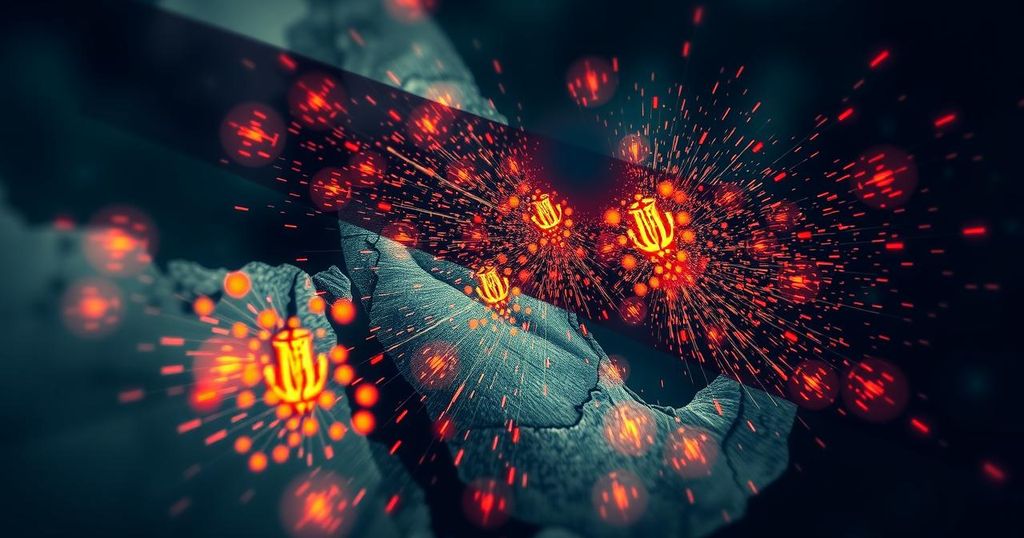Iran’s Strategy Amidst Potential Ceasefire: Supporting Lebanese Resistance or Escalating Conflict?

Iran shows strong support for Lebanese resistance ahead of a potential ceasefire with Israel and Hezbollah. Iranian officials confirm continued arms shipments and a medical mission to Lebanon, emphasizing solidarity with the Lebanese government and people. As tensions escalate, Iran faces decisions that could impact its nuclear ambitions and the activity of its regional proxies in response to Israel’s actions.
Iran intends to assert its support for the Lebanese resistance amidst potential ceasefire deliberations between Israel and Hezbollah. Iranian Foreign Minister Abbas Araghchi emphasized this support in a recent conversation with Iranian officials, highlighting Iran’s backing for the Lebanese population and government. Iran has taken steps to definitively demonstrate its allegiance, including dispatching a medical mission to Lebanon and continuing covert arms shipments to Hezbollah.
The backdrop to these developments involves the complex relationship between Hezbollah and Israel, particularly since Israel’s escalated military operations in Lebanon. Although Hezbollah rally behind Hamas post the October 7 attacks on Israel, they may not have anticipated their direct entanglement at this juncture. The introduction of a ceasefire has potential ramifications for Iran, which is keen to fortify its connections with regional proxies.
It is important to note that the proposed ceasefire could also mark a significant turning point for Iran’s strategic calculations. Iran finds itself at a crossroads, contemplating its future actions, including advancing its nuclear program or orchestrating more aggressive actions through its proxies in Iraq and Syria. The next few weeks leading up to the expected ceasefire will be crucial for Iran’s geopolitical strategies and regional dynamics, especially as the risk of conflict escalation remains high.
The current geopolitical landscape between Iran, Lebanon, and Israel has been shaped by ongoing tensions and military confrontations. Following the attack on Israel by Hamas on October 7, Hezbollah’s involvement in the conflict, coupled with Iran’s support for both groups, has intensified. The ongoing military engagements and the potential for a ceasefire present critical strategic opportunities for Iran, as the nation balances internal pressures for nuclear advancement against the need to assert its influence in the region through its proxies.
In conclusion, Iran’s next steps following a potential ceasefire in Lebanon could involve either bolstering its nuclear capabilities or escalating proxy conflicts against Israel. The decisions made in the upcoming weeks will be crucial not only for Iran’s regional dominance but also for the broader stability in the Middle East, as the interplay of internal aspirations and external pressures comes into play.
Original Source: www.jpost.com








